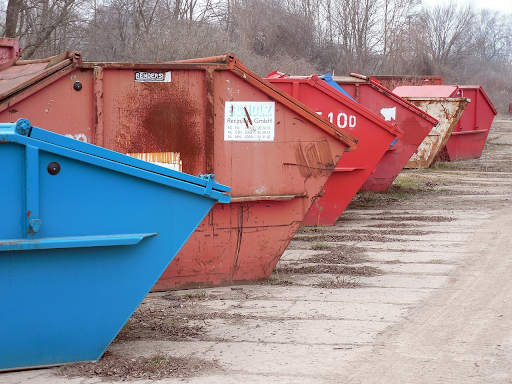
When it comes to waste management for large-scale clean-ups, renovations, or construction projects, hiring a skip can be a convenient and efficient solution. There are several excellent London skip hire companies that offer complete waste management solutions.
However, to make the most of this service and avoid unnecessary costs or legal issues, it’s important to be aware of common mistakes and understand how to avoid them. This article provides an in-depth look at the pitfalls to avoid when hiring a skip, ensuring your experience is as smooth and cost-effective as possible. Introduction
Skip hire is a popular solution for managing large volumes of waste, offering various sizes and options to suit different needs. While it’s a straightforward service, certain mistakes can complicate the process, lead to unexpected costs, or even result in legal issues. Understanding these common pitfalls can help you plan better and avoid unnecessary trouble.
One of the most common mistakes is misjudging the size of the skip needed.
Often, people underestimate the amount of waste they have, resulting in a skip that’s too small. This can lead to the need for an additional skip, increasing costs.
Conversely, overestimating can lead to paying for more skip space than necessary. This is particularly wasteful if the skip hire company doesn’t offer a refund for unused space.
Always make a detailed assessment of the waste you plan to dispose of and consult with the skip hire company. They can provide guidance based on their experience with similar projects.
If you plan to place the skip on a public road or pavement, you will need a permit from your local council. Not obtaining this permit can lead to fines or having the skip removed at your expense.
Moreover, permits are usually issued for a specific duration. Extending beyond this period without renewing the permit can incur additional costs.
Contact your local council well in advance to understand the permit requirements, costs, and processing time. Ensure that the permit covers the entire duration of your skip hire.
Skips are not a one-size-fits-all solution for waste disposal. Certain materials like refrigerators, batteries, tires, paints, and hazardous waste are typically not allowed in skips due to safety and environmental regulations.
Disposing of prohibited items in a skip can lead to significant fines and legal issues, as well as potential harm to the environment.
Always ask the skip hire company for a list of prohibited items and consider alternative disposal methods for these materials, such as local recycling centers or specialized disposal services.
Skips need to be delivered and later removed by large trucks. Inadequate planning for access can lead to delivery failures or additional charges for wasted trips.
Consider overhead wires, narrow gates, or steep inclines that might complicate delivery and pickup. Ensure the skip can be placed and removed safely without damaging your property or the surrounding area.
Before hiring a skip, measure the area where it will be placed and the access route. Discuss these details with the skip hire company to ensure the skip size and truck type can be accommodated.
Skip hire costs can vary significantly between companies, influenced by factors like skip size, rental duration, and location.
While cost is an important factor, don’t compromise on service quality. Poor service can lead to delays, miscommunication, and additional hidden costs.
Obtain quotes from several companies and compare not only the price but also reviews, services offered, and terms and conditions. Look for value, not just the lowest cost.
Skips have fill level and weight restrictions for safe transportation. Overloading a skip can create safety hazards and is often illegal.
Many skip hire companies will charge extra or refuse to remove an overloaded skip, leading to increased costs and delays.
Be mindful of the fill level when loading your skip. If you’re unsure about the weight of your waste, consult with the skip hire company. They can advise on how to avoid overloading.
By not separating recyclable materials, you might miss the chance to reduce the overall volume of waste and potentially decrease the cost of skip hire.
Properly disposing of recyclable materials can significantly reduce the environmental impact of your project.
Before filling the skip, identify items that can be recycled or donated. Many communities have services or organizations that can make use of materials like metals, wood, or even old furniture.
Hiring a skip can dramatically simplify waste management for any project, but it’s important to approach the process with care. By understanding and avoiding the common mistakes outlined in this article, you can ensure a smooth, efficient, and cost-effective experience.
Remember to assess your waste carefully, understand the legal requirements, plan for delivery and pickup, compare your options, avoid overloading, and consider recycling opportunities. With these expert tips in mind, you’ll be well-equipped to hire a skip that meets your needs and supports the successful completion of your project.